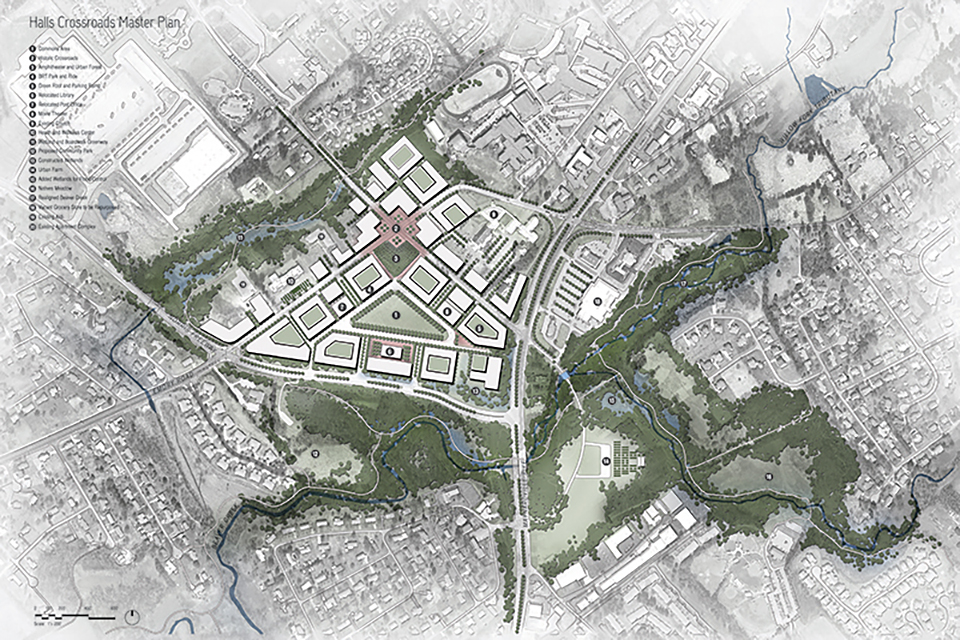Sustainable Design
The College of Architecture and Design offers a concentration in sustainable design incorporating knowledge from a wide range of disciplines, ranging from technical to philosophical. This concentration explores the interrelation between decisions made when designing the built environment and their short-term and long-term impacts on the ecological environment. Students are asked to take responsibility for the role architecture plays in the consumption of natural resources, underscoring the need for interdisciplinary dialogue and leadership at building, site, city, and regional scales. This responsibility usually entails attention to building performance, from design through development to evaluation.
The Sustainable Design concentration offers opportunities for topical study such as, but not limited to
- Environmental Ethics
- Environmental Policy
- Energy and Urbanism
- Energy Modeling, Simulation and Prototyping
- Design for Carbon Neutrality.
- Net Zero and Net Positive Buildings
- Resilient Design
- Passive Energy Design
- Sustainable and Renewable Materials and Methods
- High-Performance Building Envelopes
- Innovative Use of Traditional Materials
Potential resources
- Design | Build | Evaluate Initiative
- Joint Institute for Advanced Materials
- Institute for Smart Structures (ISS)
- Architecture Research Annex / GreenVision Studio
- UTK Smart Communities Initiative
- Institute for Secure and Sustainable Environments (ISSE)
- Nashville Civic Design Center (NCDC)
- Oak Ridge National Laboratory (ORNL)

To be included in the concentration, all courses must be approved by the Architecture Graduate Studies Chair in consultation with the faculty and will be based on the content of the specific course the student completed. Documentation will be kept by the School of Architecture, but it is the student’s responsibility to solicit approval through the advising process.
- Six credit hours from one of the following:
- Plus six elective credit hours from one of these courses or similar courses per advising process:
- Of the six elective credit hours, up to three credit hours may be from:
- Of the six elective credit hours, up to three credit hours may be from approved courses in other departments, such as:
- Agricultural and Resource Economics: AREC 570 (3 credit hours)
- Biosystems Engineering: BSE 562 (3 credit hours)
- Ecology: EEB 503 (1 credit hours), EEB 509 (4 credit hours)
- Economics: ECON 463 (3 credit hours) [Prerequisite(s): 311], ECON 677 (3 credit hours), ECON 678 (3 credit hours)
- Forestry: FORS 423 (3 credit hours)
- Forestry, Wildlife and Fisheries: FWF 520 (3 credit hours), FWF 540 (2 credit hours)
- Geography: GEOG 434 (3 credit hours), GEOG 436 (3 credit hours), GEOG 449 (3 credit hours), GEOG 536 (3 credit hours), GEOG 541 (3 credit hours), GEOG 545 (3 credit hours)
- Landscape Architecture: LAR 525 (1-6 credit hours)
- Mechanical Engineering: ME 572 (3 credit hours)
- Philosophy: PHIL 545 (3 credit hours)
- Political Science: POLS 581 (3 credit hours)
- Plant Sciences: PLSC 421 (3 credit hours), PLSC 515 (3 credit hours)
- Sociology: SOCI 465 (3 credit hours), SOCI 562 (3 credit hours), SOCI 661 (3 credit hours)


